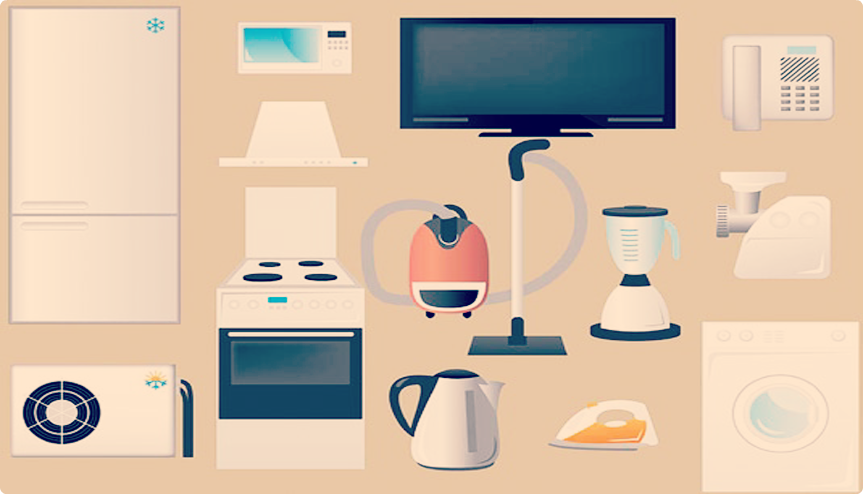What You Need to Know in Buying Appliances
By Excel V. Dyquiangco
Whether you shop at your neighborhood appliance outlet or at your local department store, knowing what to look for in a kitchen appliance, for example, can save you a whole lot of cash – and stress.
“When buying appliances, exercise common sense,” says Director Ferdinand Manfoste, Officer-in-Charge, Department of Trade and Industry-NCR. “well-informed consumers are hard to beat and trick. We should have a drive to know and identify our rights as consumers. Of course, DTI is always behind you, which is why we have legal and DTI outlets to help you wherever you live.”
So whether you are buying a microwave oven, an air conditioner, a refrigerator, a toaster or even a vacuum cleaner, Manfoste offers these six tips to help you buy a great product that will stand the test of time.
-
Check for the standard seals.
An appliance that’s locally manufactured has the PS mark which stands for the “Product Standard” mark and for imported ones have the ICC mark which means “Import Commodity Clearance”. These are attached to the appliances. “these marks are made visible in order to identify whether a particular appliance has passed through these product certification schemes as implemented by the bureau of product standards,” says Manfoste. The PS mark is characterized by a globe with a check mark while the ICC mark looks like a silver sticker with a hologram. You will be able to know if this mark is counterfeit if the hologram is not easily detached even if the entire logo has already been removed
-
Make sure the retailer has the proper certificate.
“In order to validate whether these marks have really been legally consumed by the particular retailers or dealers, they should possess the certificate of ICC issued by DTI,” says Manfoste. “the customers now would know that this particular importer is legitimate. For locally manufactured home appliances, the manufacturers also need to undergo this product certification scheme – the testing of product and a continuous audit of their particular manufacturing enterprises. This is to make sure that the production of these home appliances has been complying with these standards.”
-
Choose those with the energy-saving label (EER).
The Department of Energy has also issued labels for both air conditioners and refrigerators. The freon (a device which causes the aircon or the ref to get cold) should comply with the standards of the EER. “there should be no excessive temperature as the appliances heat up,” says Manfoste. “on the surface, there should only be room temperature.” Here’s a tip: touch the surface of the appliances and when it immediately heats up, it’s a sign that says you should get rid of it and buy another one.
-
Look and observe the wires.
Wirings should have no cuts – these cause fires and electrocution. Wirings which have thin strands, meanwhile, are also dangerous because the thinness of the wires may not carry the weight of the whole appliance. “The wires should be compatible with the whole appliance since the thickness of each wire has a capacity,” Manfoste says. “at the same time the metal part which is attached to the wire should also be thick.”
-
Search for identification labels.
At the box of the appliance or attached to the appliance, there can be found identification labels. These labels should identify who the manufacturer is, the address, and contact number, if the company has a trade mark or an identification mark. Labels should also include the model, number or type of reference to that particular appliance. The class should also be present, nature of supply of electricity, rating of supply of voltage, rating of the main frequency or range of frequency in hertz, rate of power consumption of the apparatus so that you would know if you can save with this appliance, and whether the appliance is intended for connection if you don’t plan to use batteries. “Of course there are also other instructions as supplied by the manufacturer or importer,” says Manfoste. “But in short you need to know this information just in case your home appliance becomes defective only after a few days – you need to know who to approach and ask for help.”
-
Buy from legitimate sellers.
What is the name of the appliance center you went to? Where are they located? If you buy appliances in the streets, don’t be surprised if your product is destroyed after a few days. Plus there is no warranty and when you try to return them, the seller may not be where you found him anymore.“This is a fly by night process,”says Manfoste. But if you buy them in legitimate stores, there is a one-year warranty and you can either have your product repaired or replaced and your money refunded.
But what happens when your product becomes defective? Who can you approach? “There is no hope for those who have purchased theirs at fly by night stores since these sellers have no warranty,” says Manfoste. “On the other hand, after purchasing it at a legal seller, you can approach the consumer complaint handling of DTI. You can contact the DTI contact center at 7513330 or email at dtincrlegal@yahoo.com, visit www.dtincr.ph or just drop by any other DTI agencies where you can file a complaint. Bring proofs of purchase such as an official receipt.”
Huge stores such as SM, Robinsons and Rustan’s also have consumer welfare desks where they can serve you and handle your complaints. The people behind these are trained by the DTI. According to the law you can complain within 90 days after you buy the appliance. But there is also an implied warranty where it runs for one year after the date of purchase. When one year has already been lapsed, it’s already at the expense of the consumer.







Great tips!
Personally, I always go for appliances with the energy-star logo. But even when it’s not present it’s not too hard to compare just ask how many watts the appliance consumes (and how much water, if it’s a washing machine).
I always go for the one with the lowest wattage, as long as it’s a high-quality brand. I ask about the warranty too, except a lot have 1-year warranties so I tend to look at reviews online to find out which one is more durable.